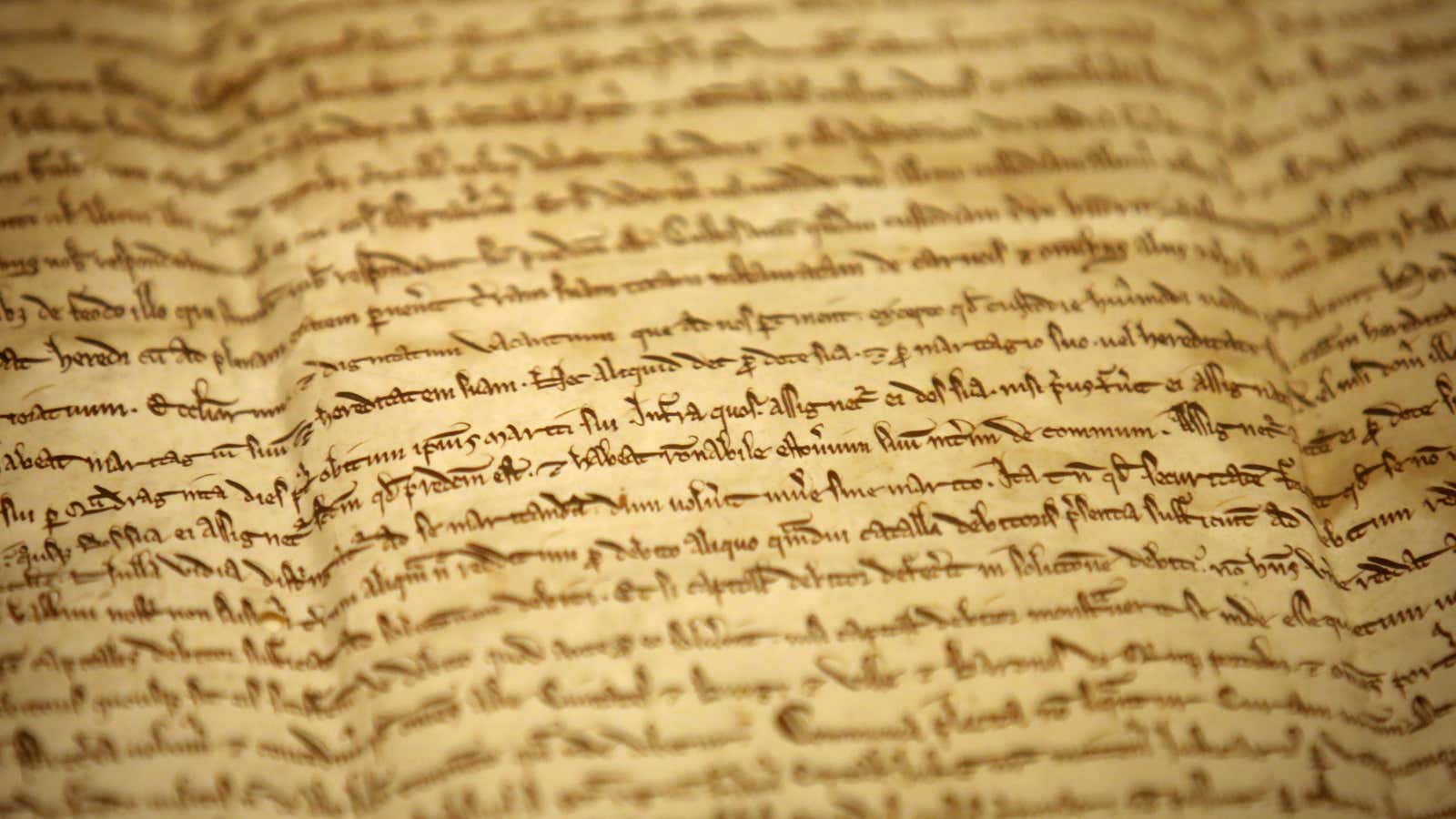At last, the UK parliament is leaving the 11th century behind. The thousand-year-old British tradition of recording laws on parchment made from the skins of baby cows is set to end this April.
The House of Lords confirmed on Feb. 9 that future laws would be printed on archival paper and not on vellum parchment.
The parliamentary body cited expenses as the main reason for change: The vellum tradition costs about £80,000 (about $115,000) a year, and takes about 130 calves to make 500 pages.
Many of the country’s historic documents, including the Domesday Book, completed in 1086, and the Magna Carta, written in 1215, were recorded on vellum. The House of Lord’s oldest archived document on vellum is an act of parliament from 1497.
Archival paper has somewhere between a tenth and a twenty-fifth of vellum’s lifespan, about 5,000 years. Of course, both mediums potentially have a tiny fraction of the lifespan of electronic records.
